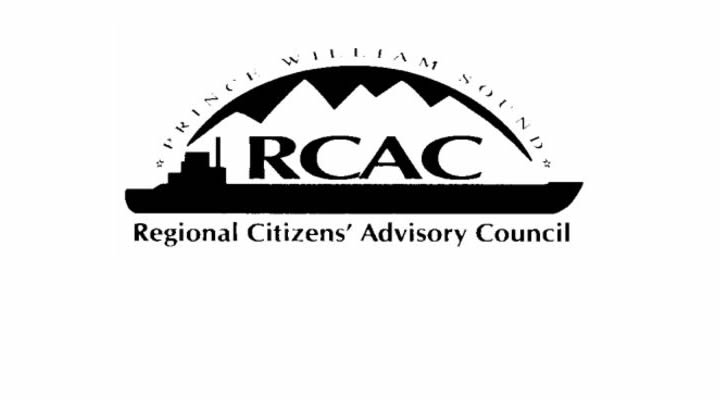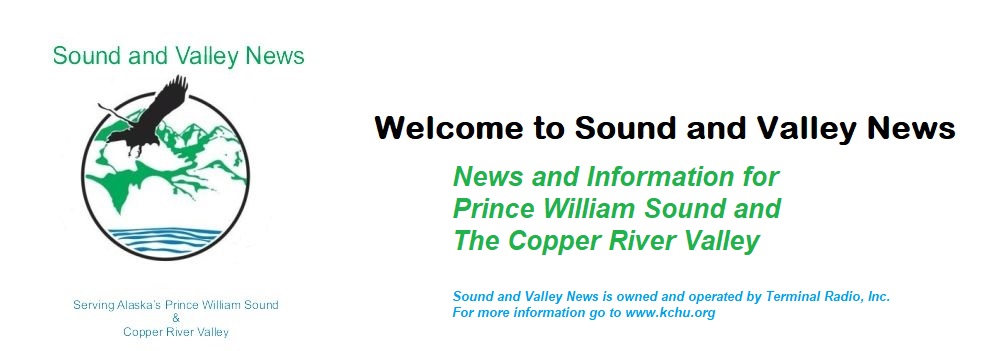
Transparency is the foundation of public trust
By Donna
Schantz
Author’s note:
As noted in the following opinion piece, the Prince William Sound
Regional Citizens’ Advisory Council had urged the Regulatory
Commission of Alaska to take a position of full transparency on the
sale of BP’s Alaska assets to Hilcorp/Harvest by allowing public
access to basic financial information provided to them by
Hilcorp/Harvest. On March 12, the commission ruled that the financial
documentation could remain confidential.
The council would like to note that Commissioner Stephen McAlpine dissented the commission’s decision, noting, “I believe that airing these documents publicly and subjecting the entire transaction to intense debate far outweighs the petitioners’ interest in keeping them confidential. Instead, Hilcorp has invited an unnecessary public relations nightmare over what may come of the lifeblood of our state. Now public scrutiny may well be based on speculation as to what the documents may or may not say rather than a complete airing of the facts as they exist.”
In the few days that have transpired since that ruling, a lot has changed globally, some connected to the spread of COVID-19. Now we are facing plummeting oil prices, major financial institutions stating they will not invest in Arctic development and credit rating companies noting this deal could impact Hilcorp’s rating. Given these exceptional circumstances, the commission should require Hilcorp/Harvest to resubmit their financial information and possibly reconsider their ruling.
______________________
Public trust in our oil spill prevention and response system took many years to rebuild after the 1989 Exxon Valdez oil spill. It took a commitment to transparency, listening and engaging stakeholders in developing and maintaining the system of safeguards we have today for the Valdez Marine Terminal and associated tankers. Alyeska Pipeline Service Company initiated many of the spill prevention and response improvements by working with regulators and the public, a testament to their ongoing commitment to the people, environment and safety.
This system is now widely regarded as one of the best in the world. Strong State of Alaska statutes and regulations have been a major driver of this robust system. The lack of significant spills in Prince William Sound over the last 30 years indicates the effectiveness of industry meeting or exceeding regulatory requirements.
In enacting the Oil Pollution Act of 1990, Congress determined that only when local citizens are involved in oil transport will the trust develop that is necessary to change the system from confrontation to consensus, and so the Act called for creation of citizen councils.
The Prince William Sound Regional Citizens’ Advisory Council was created to provide a voice for citizens, those with the most to lose in the event of a large spill. Our council is a unique partner for industry and regulators, giving them a platform to provide information, answer questions, listen to stakeholders and cultivate the long-term relationships that are necessary to establish public trust. Involving local citizens in the process of independently verifying the state of readiness to prevent and respond to oil spills helps build trust.
|
|
The inability to verify is at the core of concerns the council currently has regarding the upcoming sale of BP’s Alaska assets to Hilcorp, including the transfer of 49% ownership of the Trans Alaska Pipeline System. There is a lack of information available for the public to determine whether Hilcorp and/or Harvest is financially fit, willing and able to safely and reliably operate the Valdez Marine Terminal and associated tankers in Prince William Sound.
When BP and Hilcorp/Harvest filed with the Regulatory Commission of Alaska to request approval of the transfer of operating authority, Hilcorp/Harvest also filed a petition for confidential treatment of certain financial information. Meanwhile, the public has been asked to provide comments and participate in a public process without access to this information. How can the public be expected to make meaningful comments when important information is not available?
For the past 40 years, every owner of the Trans Alaska Pipeline System has disclosed financial information to the investment community in order to be publicly traded. The public deserves to have access to Hilcorp/Harvest’s financial information in order to determine whether the transfer of operating authority to Hilcorp/Harvest is in the best interest of the public.
The Regulatory Commission of Alaska has said it will make a determination by March 12, 2020, on whether the financial statements will be disclosed to the general public. Under Alaska law, records of all public agencies are open to inspection by the public, unless specifically provided otherwise. The council urges the commission to take a position of full transparency by allowing public access to basic financial information. Safeguarding our state by ensuring Hilcorp/Harvest’s ability to respond to a major spill and properly clean up as assets are shutdown must outweigh concerns about privacy for this information.
Alaskans should be welcoming Hilcorp/Harvest and supporting the successful transfer and operation of these assets that are so important to the state. The public should be looking forward to building cooperative and collaborative relationships founded upon the transparent sharing of information. We know from experience that Congress was right when they said that only when stakeholders feel informed, heard and included in the process, will trust and acceptance develop. Transparent access to information regarding the transfer of assets from BP to Hilcorp/Harvest is essential to building public support and trust.
Donna Schantz is executive director for the Prince William Sound Regional Citizens’ Advisory Council.

